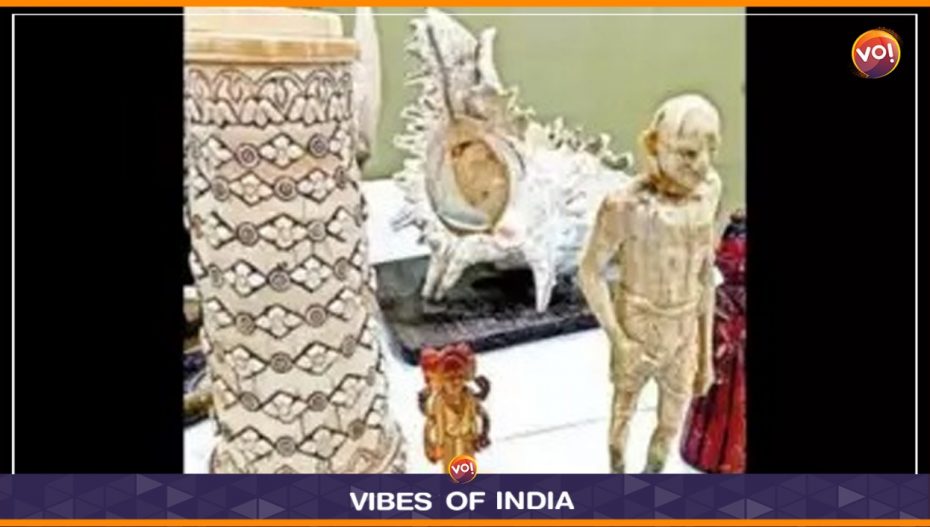Close on heels of arrests following rhino horns being sold openly in the market, the Vadodara police and Wildlife Crime Control Bureau have unearthed a thriving illegal ivory smuggling racket. Four persons were arrested on Wednesday and investigation reveals that the nexus spans the entire country. Preliminary findings reveal that ivory artefacts are being sold in the garb of “antiques.”
Under the Wildlife (Protection) Act 1972, elephant tusks and the sale of ivory goods are banned in India.
One kilogram of tusk costs Rs 2 to Rs 3 lakhs in the black market. Sleuths shared that the trade “flourished” owing to a well-established “underhand” network all over the country’s many curio and cottage industry stores.
“So far, we have learnt that the market is accessed online. Payments and delivery are made in person. The collectors are assured that the purchase is an antique,” briefed Doki Adi Mallaiah, inspector, WCCB Western.
The official shared that the racket was busted acting on a tip by a wildlife enthusiast, who intimated the WCCB of such “openly being sold” artefacts.
“Prime accused Kiran Shah has been arrested. We also recovered some ivory idols and two rhino horns from his shop. Three others have also been arrested. However, they are merely the supply points in the racket which starts with poaching. We suspect that the hunting is happening in collusion with corrupt wildlife officers all across forest and reserves in India. As of now, it has been learnt that the tusks from Vadodara were sent to artistes in Rajasthan and West Bengal for intricately carved idols of deities” added Mallaiah.
Also Read: GU Special Drive To Recover Dues Yields Results; Rs 1.54 Cr Recovered













